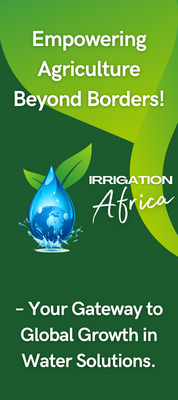Category
Recent Posts
- Climate change threatens water and sanitation facilities in Nepal
- Partnerships the main driver at Cairo Water Week 2024
- Pakistan Water Week 2024 aims to tackle the water and food security crises
- Minister reiterates govt’s resolve to address water woes
- Data on continental-scale river discharge are crucial to address water demand
Recent Comments

The Ultimate Weed Control Solution

Brands









dc.title: Agricultural extension services in Bangladesh: experiences of vulnerability, access and benefits
dc.contributor.author: Joshi, Deepa; Panagiotou, A.; Rahman, M. W.
dcterms.abstract: Bangladesh, one of the world’s most densely populated countries, faces significant challenges related to poverty, food insecurity, and agricultural productivity. With over 40% of the population engaged in agriculture, the majority of which involves smallholder rice farming, these challenges are even more pronounced. Approximately 92% of farmers own less than 0.5 hectares of land, making it difficult for them to achieve sustainable incomes. While efforts like irrigation and triple-cropping aim to intensify crop production, they often fail to ensure economic stability, especially in climate-vulnerable coastal regions. Farmers in these areas frequently resort to seasonal migration and face severe economic distress. Given these conditions, agricultural innovation and access to extension services are crucial for improving food security and farmer livelihoods. However, adoption of new agricultural practices remains low, especially among women, due to challenges such as low literacy, cultural norms, and limited social mobility.
Agricultural extension services are vital to addressing these challenges. Traditionally provided by public institutions, these services are increasingly supplemented by private and non-governmental organizations (NGOs), driven by declining government funding. Public extension services focus on providing subsidized inputs, such as seeds and fertilizers. However, inefficiencies arise due to poor coordination between stakeholders, leading to contradictory advice and resource misallocation. Furthermore, outreach is often insufficient, particularly for marginalized groups like women and landless farmers, who are frequently excluded from formal training programs. Cultural practices, such as purdah, further limit women’s participation in public activities, restricting their access to agricultural knowledge. While informal networks, including farmer-led clubs and local NGOs, play an important role in disseminating information, they lack the capacity to drive large-scale, sustainable change.
A study conducted in Polder 34/2 of Batiaghata Upazila, Khulna District, highlights the limitations of formal extension services. The research found that most farmers rely on informal knowledge-sharing networks or peer observation, as formal training mainly benefits landowning farmers. Those who received formal extension services reported better crop yields, whereas those relying on informal networks struggled with climate-related issues, such as salinity and irregular rainfall. The study also revealed that extension services predominantly focus on crop systems, neglecting the important roles of livestock and fisheries, which are also vital to the agrarian economy. This lack of integration across agricultural sectors further exacerbates the vulnerabilities faced by smallholder farmers.
In conclusion, while agricultural extension services have the potential to improve food security and support smallholder farmers, the current system is fragmented and inadequate. The research calls for better coordination between public, private, and informal actors and targeted approaches to ensure marginalized groups, especially women, have access to agricultural knowledge. Long-term, programmatic interventions are needed to build a more resilient and inclusive agricultural system capable of addressing the evolving challenges posed by climate change and socio-economic inequality in Bangladesh.
cg.contributor.initiative: Asian Mega-Deltas







